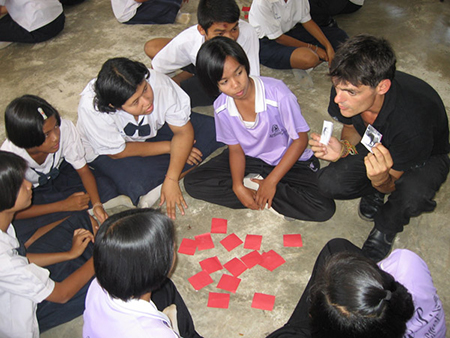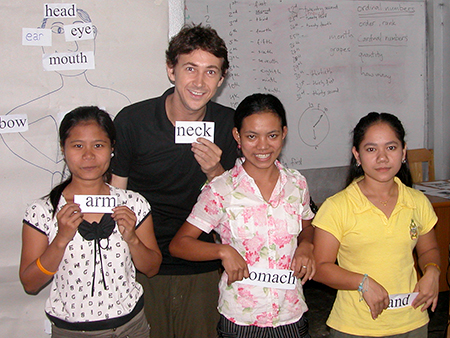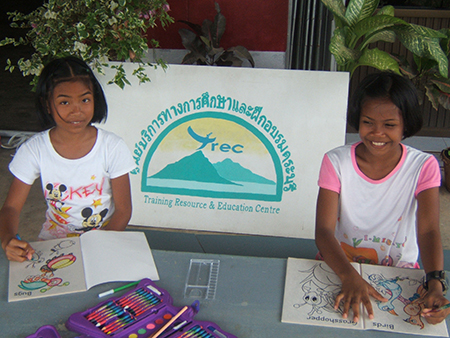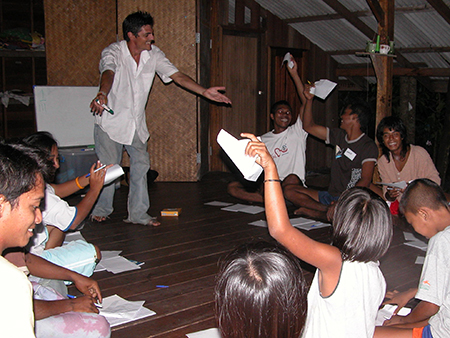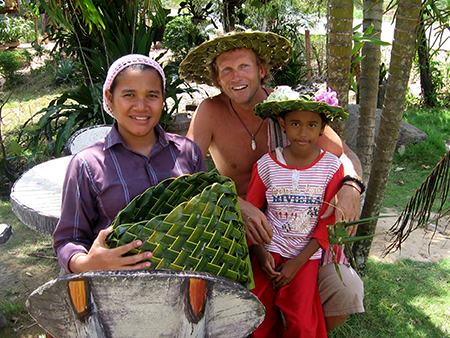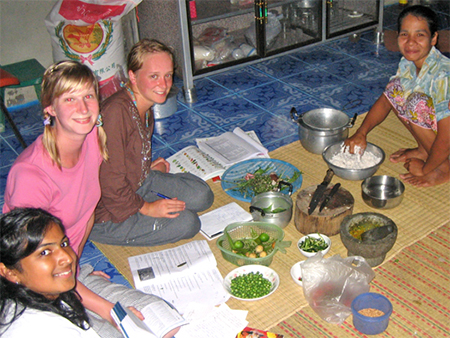Introduction
In the wake of the tsunami, many affected villages have begun to develop forms of alternate income such as handicrafts and community-based tourism. In tandem, the number of foreign visitors to the area is increasing, and new attractions are being developed. Fearing that many of the benefits of tourism could accrue to outsiders, local villagers requested English lessons as a key component of an overall empowerment strategy. NATR’s English programs provide effective, engaging language training designed to increase economic opportunity. We focus our efforts on rural adults, as they often lack access to further education.
The English team at NATR has developed a wide range of resources, including lesson plans, worksheets, homework assignments, language assessments, feedback forms, flashcards, and realia. We have compiled two complete English curriculums and also developed several visionary products that promote mutual language learning in a homestay setting. Each of these resources is based on differences in learning environment, availability of trained teachers, time available for lessons, and student skill level.
All materials are free to download and print (requires Adobe Acrobat Reader); however, we do request that you please share any feedback you have about the materials, including how you used them and what we can do to improve them.
NATR English Products and Curriculums
Introductory Rural English (IRE)
An absolute- to low-beginner level course, IRE is designed for villagers in rural areas of Thailand where tourism is poised to expand. The course aims to give students the basic language to describe their livelihood, family, community, and surrounding environment. The course consists of approximately 20 contact hours and includes 10 interactive lessons (most of which can be further broken up) with games and activities that involve English language practice. Upon completion of this course students should possess the language skills to introduce themselves as well as describe their community, livelihood, family, and surrounding environment in simple terms. The lessons are designed to give the student maximum speaking practice using the language in real life situations.
Community Tourism Phrasebooks (English-Thai and Thai-English)
This resource was designed to improve communication in the homestay setting. Since there are both English-Thai and Thai-English versions, the phrasebooks are useful to both foreign tourists and Thai speakers engaged in community tourism. The Phrasebooks feature simple questions and relevant conversation topics, along with language specific to the homestay environment and local activities. The English-Thai Phrasebook contains an introduction, simple pronunciation guide, and language sections including English, Thai and English phonetics. The Thai-English version includes Thai, English and Thai phonetics. It can be used as a self-learning tool for Thai speakers with no knowledge of the English alphabet. The easy-to-use format of both Phrasebooks allows villagers and tourist to help each other learn.
Community-Based Tourism Homestay Pack
The Homestay English Activity Pack is designed to develop the English skills of children, guides, and homestay families in rural tourism areas. The Activity Pack contains relevant flashcards, activities and games that can be used in a practical, informal environment to help build villagers confidence. Topics include simple introductions and vocabulary activities with household objects. The pack is designed to be fun to ensure interaction between all parties. Some instructions have been translated into Thai to promote language exchange and give the villagers a sense of accomplishment. The emphasis is on speaking using a communicative and interactive methodology.


